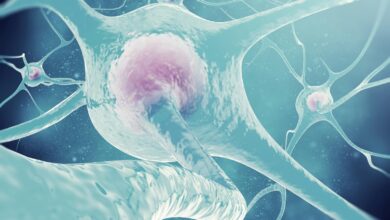The Role of Mental Positivity in Cancer Healing

Cancer is a challenging diagnosis that impacts not only the body but also the mind and spirit. While medical treatments like chemotherapy and radiation are crucial for fighting cancer, the role of mental positivity in the healing process is increasingly recognized. This article delves into how maintaining a positive mindset can influence cancer recovery, improve quality of life, and enhance overall well-being.
Understanding Mental Positivity
Mental positivity refers to an optimistic outlook on life, characterized by hope, resilience, and a proactive attitude. It doesn’t mean ignoring the harsh realities of cancer; instead, it involves finding ways to cope with these challenges while focusing on the possibilities for healing and growth. Research shows that mental positivity can impact physical health, making it a vital component of the cancer journey.
The Mind-Body Connection
The concept of the mind-body connection is well-established in health science. This principle suggests that our mental and emotional states can significantly affect our physical health. When individuals maintain a positive outlook, they may experience lower levels of stress and anxiety, which in turn can lead to improved immune function and a better overall response to treatment.
Studies indicate that patients with a positive attitude often report fewer side effects from treatments and may even experience better outcomes. This connection underscores the importance of fostering mental positivity throughout the cancer healing process.
Stress Reduction and Emotional Resilience
Cancer treatments can induce significant stress, affecting both mental and physical health. Developing strategies to manage stress is crucial for cancer patients. Techniques such as mindfulness, meditation, and breathing exercises can help reduce stress and promote emotional resilience. When patients engage in these practices, they can create a sense of calm that allows them to cope better with treatment-related challenges.
Furthermore, emotional resilience—the ability to adapt to adversity—can be cultivated through positive thinking and supportive relationships. By surrounding themselves with positive influences and engaging in uplifting activities, cancer patients can enhance their emotional well-being, enabling them to navigate their healing journey more effectively.
The Impact of Social Support
Social support plays a vital role in fostering mental positivity. Connecting with family, friends, and support groups can provide emotional comfort and practical assistance. Sharing experiences, concerns, and successes with others who understand the challenges of cancer can significantly uplift a patient’s mood.
Support groups, whether in-person or online, can create a sense of community that fosters hope and encourages positive thinking. Hearing stories of recovery and resilience from fellow cancer survivors can inspire patients to maintain a hopeful outlook on their healing journey.
The Role of Positive Affirmations
Incorporating positive affirmations into daily routines can be a powerful tool for cancer patients. Positive affirmations are short, powerful statements that can help shift negative thought patterns and reinforce a mindset of strength and resilience. By regularly repeating affirmations such as “I am strong,” “I am healing,” or “I have the power to overcome,” patients can cultivate a more positive outlook.
Studies have shown that practicing positive affirmations can improve self-esteem and reduce anxiety, creating a more supportive mental environment for healing. These simple yet effective practices can be integrated into daily life, offering encouragement and motivation during challenging times.
Visualization Techniques
Visualization is another effective strategy that cancer patients can use to promote mental positivity. This technique involves imagining a desired outcome, such as visualizing the body healing or envisioning oneself in a state of health and well-being. By creating mental images of recovery, patients can enhance their motivation and foster a sense of hope.
Research suggests that visualization can complement conventional treatments by helping to reduce anxiety and promote relaxation. Patients who practice visualization may also find it easier to cope with treatment side effects, as they focus on positive imagery rather than fear or discomfort.
Setting Realistic Goals
Establishing realistic, achievable goals is essential for maintaining mental positivity during the cancer journey. Setting small, manageable goals can help patients regain a sense of control over their lives. Whether it’s aiming to take a short walk each day, practicing a new relaxation technique, or reaching out to a supportive friend, these goals can provide motivation and a sense of accomplishment.
Celebrating even the smallest victories can boost morale and reinforce a positive mindset. Acknowledging progress, no matter how minor, can empower patients and remind them of their strength and resilience.
Professional Support and Counseling
For many cancer patients, seeking professional support can be beneficial in fostering mental positivity. Psychologists, counselors, or therapists trained in working with cancer patients can provide tools and strategies to cope with the emotional challenges of the disease. Therapy can also help patients process their feelings, fears, and concerns in a safe environment.
Cognitive-behavioral therapy (CBT), for example, focuses on changing negative thought patterns and promoting a more positive outlook. Engaging in therapy can empower patients to develop coping skills and resilience, enhancing their overall mental well-being. For more resources and support, visit https://www.the-cancer-conversation.com.
Embracing a Holistic Approach
A holistic approach to cancer healing recognizes the interconnectedness of body, mind, and spirit. Integrating practices that promote mental positivity, such as yoga, tai chi, or art therapy, can enhance overall well-being. These activities not only promote relaxation but also foster a sense of purpose and creativity, allowing patients to express themselves and connect with their inner selves.
Holistic practices encourage patients to embrace their healing journey fully, fostering a supportive environment for mental positivity and emotional resilience.
The Importance of Gratitude
Practicing gratitude can significantly influence mental positivity. Keeping a gratitude journal, where patients regularly write down things they are thankful for, can shift focus away from fear and anxiety towards appreciation for life’s blessings. This simple practice encourages a positive mindset and can help patients find joy in everyday moments, even amidst the challenges of cancer treatment.
Research has shown that gratitude is associated with improved emotional well-being and can enhance the overall quality of life. By fostering an attitude of gratitude, cancer patients can create a more positive mental environment for healing.
Conclusion
The role of mental positivity in cancer healing cannot be overstated. A positive mindset, bolstered by support, coping strategies, and holistic practices, can significantly enhance recovery and quality of life for cancer patients. By understanding the mind-body connection and embracing a proactive approach, patients can navigate their healing journey with resilience and hope.
Empowering oneself through knowledge, support, and positive practices creates a strong foundation for healing. Remember, while cancer is a significant challenge, it is possible to find strength, joy, and hope in the journey toward recovery. Fostering mental positivity can lead to transformative changes, not only in health outcomes but also in the overall experience of living with cancer.





